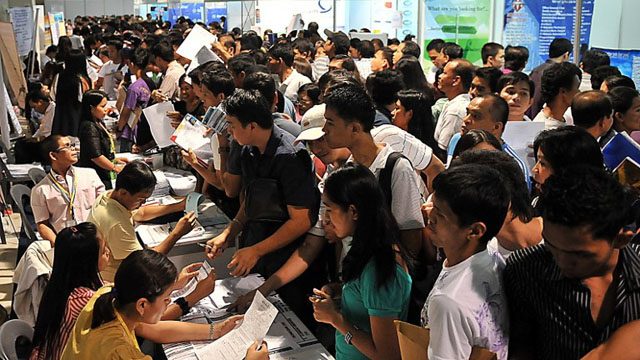SUMMARY
This is AI generated summarization, which may have errors. For context, always refer to the full article.

MANILA, Philippines – Low-income earners are bearing most of the country’s tax burden, according to data from the Department of Finance (DOF).
Citing data from the Philippine Statistics Authority (PSA) and the Bureau of Internal Revenue (BIR), the DOF said in a recent House ways and means committee hearing that low-income earners shoulder 71.6% of the country’s taxes, with minimal tax gaps between 3.6% and 9.7%.
Tax gap refers to the difference between total amounts of taxes owed to the government and the amount it actually receives or collects.
High-income earners, meanwhile, shoulder 28.4% of the tax burden, with a 27.9% tax gap.
According to the National Tax Research Center (NTRC), the tax gap among compensation income earners is around P30 billion, while the figure is at P67 billion for corporate income tax.
The NTRC said this is why the country needs a tax reform package that would shift the tax burden from low- and middle-income earners to high-income earners.
The House ways and means panel is hearing House Bill 4774, which contains the first batch of proposed tax reforms under the Duterte administration.
This includes the restructuring of the personal income tax system and the expansion of the value added tax base by reducing the coverage of its exemptions.
The maximum rate of personal income tax will be reduced over time from the current 32% to 25%. Under the DOF’s proposal, people earning at least P5 million a year face higher taxes as well.
The department, however, is also proposing an increase on fuel excise tax and the restructuring of the excise tax on automobiles, except for buses, trucks, cargo vans, jeeps, jeepney substitutes, and special purpose vehicles.
The tax reform package also includes a proposal to exempt those earning less than P250,000 from tax payment.
Critics in and out of government have since argued that the tax reforms are “anti-poor,” prompting the DOF to submit a revised proposal on January 17.
Under the new proposal, the government will no longer tax employees’ 13th month pay and other bonuses amounting to P82,000 and below.
‘Just’ tax reform package
During last week’s hearing, Albay 2nd District Representative Joey Salceda said the DOF’s comprehensive tax reform package aims to give the BIR and the Bureau of Customs the capacity to efficiently collect taxes.
“It cannot be that we give you a [revenue] goal, but not give you the means [to accomplish it],” Salceda said.
He emphasized the importance of passing HB 4774 into law as it would help sustain the growth of the Philippines’ gross domestic product and at the same time help lift the burden off the poor sector.
“Is [the tax reform bill] just? I think [so], I’ve looked at it from the point of view of social justice. In fact, it makes our current system more just [than] unjust,” Salceda said. – Mara Cepeda/Rappler.com
Add a comment
How does this make you feel?
There are no comments yet. Add your comment to start the conversation.